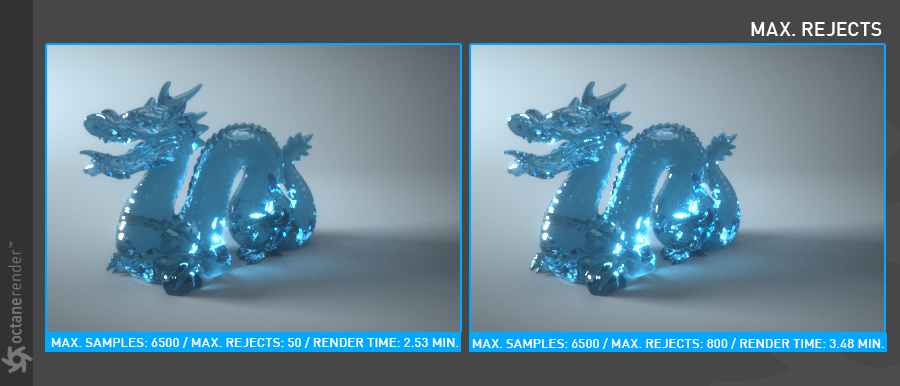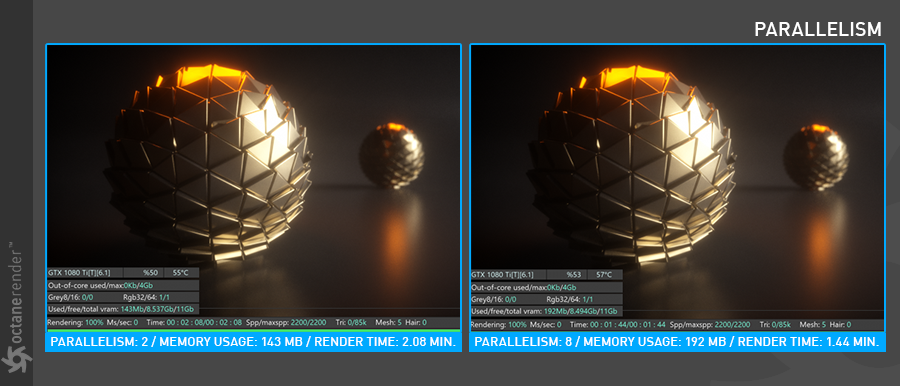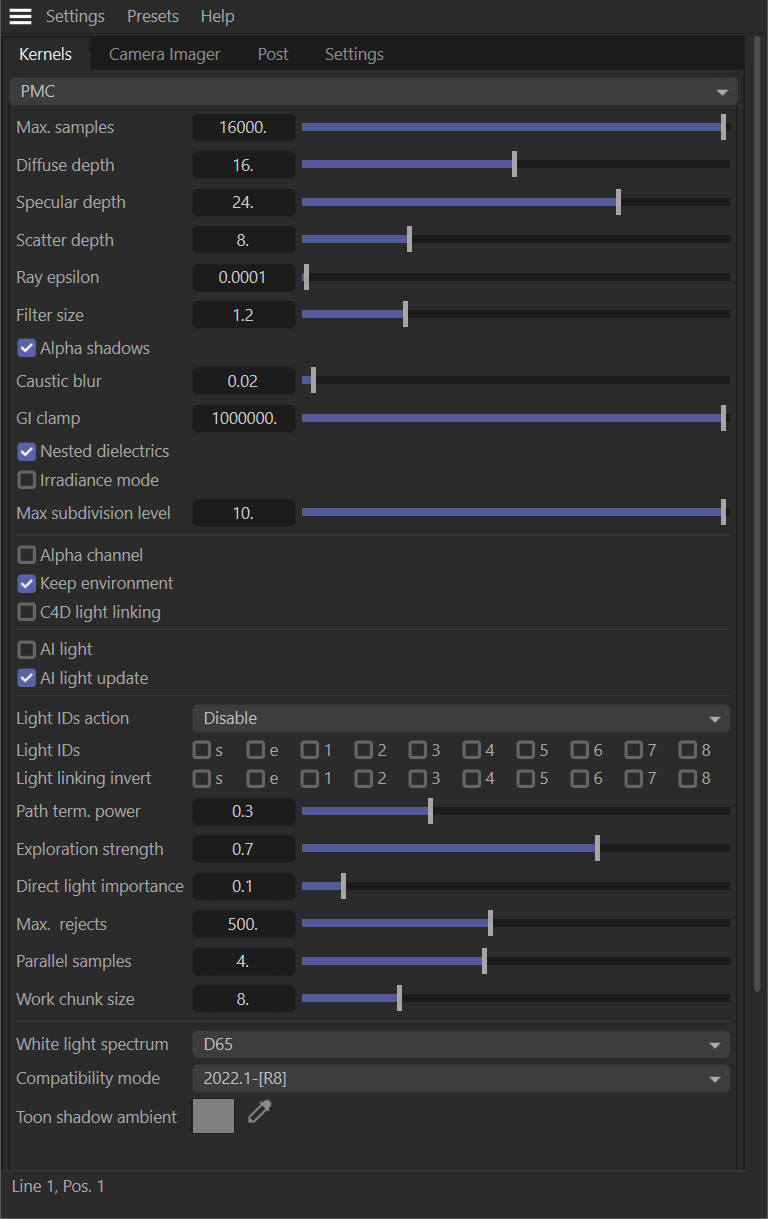PMC
The PMC Kernel is a custom-mutating unbiased kernel designed specifically for GPU rendering. Rendering with PMC creates physically accurate lighting and caustic effects and generally produces the highest quality result but can also take the most time to render depending on the scene, compared to the Photon Tracing and Path Tracing kernels. The section below explains options specific to the PMC kernel. All other options are explained in the Direct Lighting and Path Tracing topics.
|
|
Render Kernel — PMC
|
Exploration Strength
Specifies how long the kernel investigates good paths before it tries to find a new path. Low values can create a noisy image while larger values can create a splotchy image.

Direct Light Importance
Causes the kernel to prioritize ray tracing paths with indirect light. Consider sunlight cast through the window and creates a bright spot on the floor. When direct light importance is set to a value of 1, the kernel will sample this area more and reduce noise around the bright spot. Illumination in the surrounding areas will receive less attention as those areas are not receiving direct illumination, and thus not prioritized. If the direct light importance is reduced, the PMC kernel focuses more on areas of indirect illumination, which will define those regions as well as reduce the noise encountered. Decreasing the Direct Light Importance can help to even out the overall illumination balance.
Max. Rejects
Controls the “bias” of the render. By reducing the value, the result will be more biased, but the render time will be shorter. In rendering terminology biased renders introduce slight blurring and other less physically accurate computational techniques in order to reduce render time. In the image on the left below, the quality is lower than the other and is not physically accurate. But render time is faster than the other.

Parallel Samples
Controls how many samples are calculated in parallel. Smaller values require less memory to store the samples state but may cause the render to be a bit slower. High values require more memory but can reduce render time. The change in performance depends on the scene and the GPU architecture. Similar to parallel samples in Direct lighting or Path tracing. GPUs with plenty of VRAM should be set to use this option.

Work Chunk Size
The number of work blocks (of 512K samples each) done per kernel run. Increasing this value increases the memory requirement on the system but does not affect memory usage and may increase render speed.

